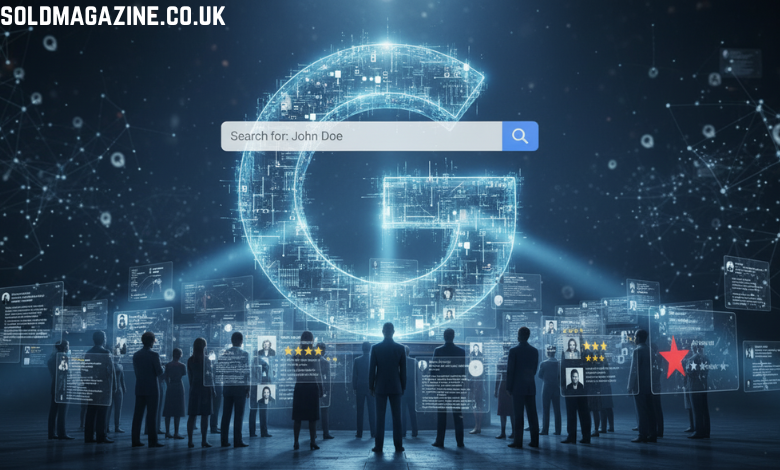Every word typed into Google is a quiet confession — a reflection of what people want, fear, and believe. Over time, those searches have turned Google into something more than a company. It has become the most powerful judge of character in the digital world.
Its power lies not in what it knows about websites, but what it knows about us — our habits, emotions, and choices.
From Chaos to Order
In the late 1990s, the internet was disorganized and unreliable. That changed when two Stanford students, Larry Page and Sergey Brin, developed PageRank, an algorithm that measured reputation instead of repetition.
Rather than rewarding whoever mentioned a keyword the most, PageRank valued links from credible sources. A link became a vote of confidence, and credibility began to define visibility.
By 2000, Google had indexed more than a billion pages. Over time, PageRank evolved into new systems like TrustRank, which fought spam and prioritized trustworthy content. Reputation became the foundation of every ranking — an idea that still drives search today.
The Data Empire
Google now processes more than eight billion searches per day and tracks billions of users through Gmail, Chrome, and Android. Each query, click, and location ping builds a behavioral profile that reflects our private lives:
- Where we go (“restaurants near me”)
- What we buy (“best laptop for college”)
- What we fear (“how to know if chest pain is serious”)
A 2021 Harvard study found that search data can predict certain health conditions with 85 percent accuracy. Gmail scans emails to suggest flights. Android records location data to refine ads. Every detail becomes part of a massive portrait — one that fuels Google’s ad engine.
About 90 percent of Google’s revenue comes from advertising shaped by that personal data.
Privacy experts recommend using tools like DuckDuckGo or ProtonMail, clearing search histories, and disabling location tracking. Companies like NetReputation also help individuals and businesses manage what Google reveals about them — from personal results to outdated or misleading information.
Algorithmic Judgment
Google updates its algorithm thousands of times each year, but its goal remains the same: to decide what is trustworthy.
Its modern framework, E-A-T (Expertise, Authoritativeness, Trustworthiness), determines which pages deserve visibility. Low-quality or manipulative content is pushed down in search results.
When the Panda update rolled out in 2012, about ten percent of affiliate sites lost visibility overnight. Since then, the algorithm has shifted again — from link-based reputation to behavioral signals.
If users quickly leave a page, it fails the trust test. If they read, click, and stay, Google assumes value.
Today, models like BERT and SpamBrain analyze intent, tone, and authenticity. Google no longer judges just what you say — it judges how believable you are.
When Search Reflects You
Since 2009, Google has personalized results based on user history, location, and device. About 65 percent of search results are now tailored to the individual.
This makes searching faster, but also narrows what people see. A 2017 study in PNAS found that personalization can shift public opinion by up to 15 percent, depending on what appears first.
Two people can search “climate change” and see completely different worlds — one filled with scientific reports, another with political debate.
To escape the “filter bubble,” users can search in incognito mode or clear browsing history regularly.
Ethical Shadows
Google’s reach brings serious ethical challenges. In 2018, its image-recognition AI mislabeled photos of Black people, revealing how bias in data leads to bias in outcomes. Predictive policing tools like COMPAS showed similar errors, misjudging minority defendants nearly half the time.
About 80 percent of web users are tracked daily through cookies and analytics scripts. Governments have taken notice, from the U.S. Department of Justice lawsuits to the European Union’s billion-dollar fines.
Fixes exist: train AI on diverse data, enforce tracking opt-outs, and expand transparency. But every step toward fairness threatens the business model built on data.
How Google Shapes Belief
With almost 90 percent of global search traffic, Google defines how billions understand the world. During the COVID-19 pandemic, researchers found that search results influenced vaccine intent for 60 percent of users.
Even autocomplete can shape opinion. Search suggestions during past elections subtly favored specific candidates. On YouTube, recommendation systems keep users engaged 30 percent longer, reinforcing existing views.
Google’s influence adds trillions to the economy but also fuels misinformation and declining trust — a cost the World Bank estimates at $ 100 billion annually.
The Next Judge: AI
The future of Google lies in AI models like Gemini and MUM, which interpret language, visuals, and emotion simultaneously. These systems aim to evaluate not only relevance but also credibility — a moral dimension once reserved for humans.
If PageRank judged links, tomorrow’s AI will judge people: which voices are credible, which are misleading, and who deserves to be heard.
Governments are responding. The U.S. AI Bill of Rights calls for algorithmic transparency, but enforcement lags behind innovation. Half of Americans now view AI-driven profiling as a direct threat to privacy.
The Takeaway
Google began as a tool to organize the web. It became a mirror of humanity — and eventually, a judge of it. Its algorithms don’t just reflect who we are; they help shape who we become.
As AI takes over more of that judgment, the real question isn’t how accurate Google is. It’s how much authority we’re willing to give it.
For individuals and brands, visibility on Google now defines credibility. Managing that visibility is no longer optional. That’s why NetReputation works with clients to build trust, correct inaccuracies, and ensure that search results reflect the truth — not the algorithm’s version of it.




